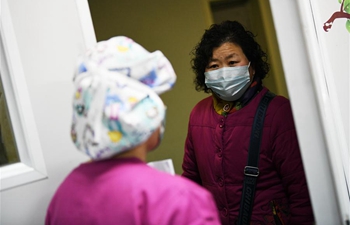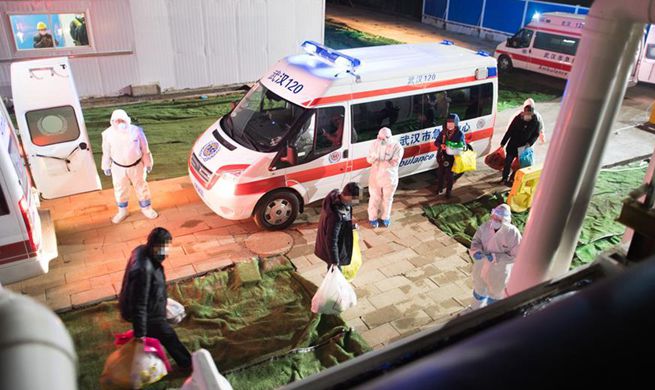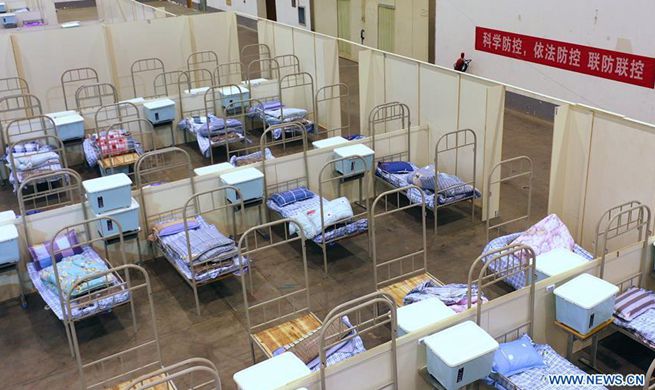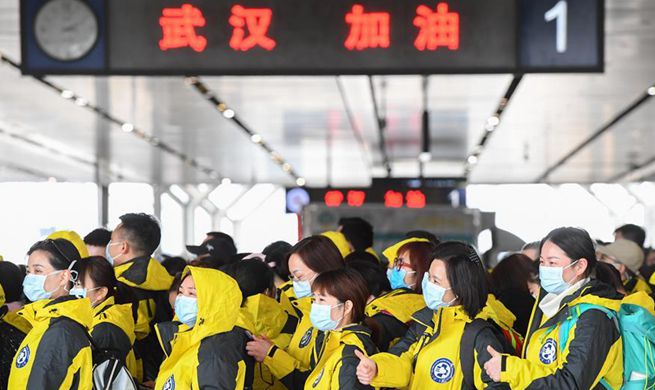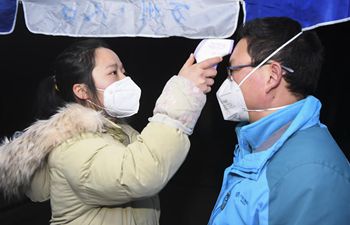JINAN, Feb. 9 (Xinhua) -- A man in eastern China's Shandong Province confirmed with the novel coronavirus infection has been put under police investigation for holding back his prior travel and contact, which led to the quarantine of 68 medical workers and 49 others.
The case was recently brought up by the provincial department of public security at a press conference on epidemic prevention and control.
"The man was charged for allegedly committing the crime of jeopardizing public security in a dangerous manner," said an official with the department.
Similar cases were found in other places, which severely hampered the efforts of the governments and the people in fighting the disease.
A woman in Xingtai, north China's Hebei Province tried to conceal that she had lived in Wuhan, the epicenter of the coronavirus outbreak, and had close contact with 77 people after her return to her hometown.
The 64-year-old woman, surnamed Liu, died of novel coronavirus pneumonia on Saturday shortly after her infection was confirmed, authorities said.
Liu and her family kept denying having lived in Wuhan until Thursday, after her health deteriorated. Before that, she went to see a dentist and visited the hospital, potentially spreading the virus to scores of poeple. Local authorities have placed all close contacts in quarantine, although the contacts currently tested negative of the virus.
Chinese police have strengthened investigation into such cases to curb the spread of the virus.
Meanwhile, regulations were issued in many places to criminalize such acts as well as others including manufacturing and marketing fake medical equipment and supplies, spreading rumors, and illegal wildlife hunting and trade.
Legal experts believe that during this critical period of epidemic prevention and control, China's local governments are tightening strings on the fight against the epidemic in accordance with the law, providing law-based support to win the battle.
The National Health Commission Sunday said it received reports of 2,656 new confirmed cases of novel coronavirus infection on Saturday from 31 provincial-level regions and the Xinjiang Production and Construction Corps, bringing the overall confirmed cases on the Chinese mainland to 37,198 by the end of Saturday.
The whole nation is taking action. In Shanghai, those who violate quarantine or conceal coronavirus symptoms, a travel history in key virus-hit regions or a history of contact with confirmed and suspected patients will not only be subject to legal liabilities in accordance with the law, but be blacklisted on Shanghai's credit information platform.
Experts said that linking the concealment of coronavirus symptoms with personal credit records will pressure individuals into cooperation in special times.
"These regulations can ensure that all measures in the prevention and control of the epidemic are brought in line with the rule of law and in good order," said Hu Changlong, a professor with the Law School of Shandong University.
In addition to strict law enforcement, local governments in China have published compilations of legal provisions concerning virus prevention and control, popularizing relevant legal knowledge.
Greater uncertainty to the anti-virus campaign lies ahead with a larger flow of personnel as the resumption of work and the new school semester is about to start. Under such circumstances, legislation, law enforcement and legal knowledge education are expected to play a more important role, analysts said.
All the law-based solutions indicate the Chinese government's determination and confidence in winning this battle against the epidemic, Hu noted.







